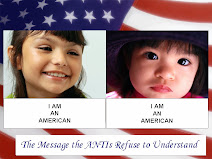 California passed a new law, AB 131 - known as the California Dream Act and will become effective January 1, 2013. "Going to college is a dream that promises intellectual excitement and creative thinking," Brown said in a statement from Sacramento. "The Dream Act benefits us all by giving top students a chance to improve their lives and the lives of all of us."
California passed a new law, AB 131 - known as the California Dream Act and will become effective January 1, 2013. "Going to college is a dream that promises intellectual excitement and creative thinking," Brown said in a statement from Sacramento. "The Dream Act benefits us all by giving top students a chance to improve their lives and the lives of all of us."Currently, Dream students in California must pay resident tuition rates if they graduated from a state high school and are actively seeking to legalize their immigration status, officials said. The other half of the California Dream Act was signed into law by Brown in July and allows undocumented immigrant students to receive privately funded scholarships administered at public universities and community colleges.
That law, called AB 130, was needed because the University of California and California State University systems avoided giving the private scholarships to their undocumented students, citing vagueness in laws, said the legislative aide to California Dream Act's author, state Assemblyman Gilbert Cedillo (D-Los Angeles).
Cedillo called Saturday's signing "historic" and path-breaking for the United States -- coming at a time when many states such as Alabama and Arizona are passing aggressive laws targeting undocumented immigrants. Some of those laws are being challenged in court.
"The signing of now both parts of the California Dream Act will send a message across the country that California is prepared to lead the country with a positive and productive vision for how we approach challenging issues related to immigration," Cedillo said in a statement.
"Today, Ana and Maria Gomez, Jaime Kim, David Cho, Pedro Ramirez -- and thousands of other students who are some of the best and brightest in California -- have been told by our governor and legislative leaders that you are welcome here, that you have something to contribute, that you can be proud of what you have accomplished and that your talents and ambition will not go to waste," Cedillo said.
Under AB 131, qualifying Dream students will be eligible for state Board of Governors fee waivers, student aid programs administered by a college or university, and the state aid Cal Grants program for state universities, community colleges, and qualifying independent and career colleges or technical schools in California, according to Cedillo.
The California Dream Act differs from a proposed federal bill called the Development, Relief and Education for Alien Minors -- or DREAM -- Act, which would create a path to citizenship for immigrants who entered the United States illegally as children under the age of 16 and have lived in the United States for at least five years, obtained a high school or General Education Development diploma, and demonstrated "good moral character," according to a White House fact sheet.








